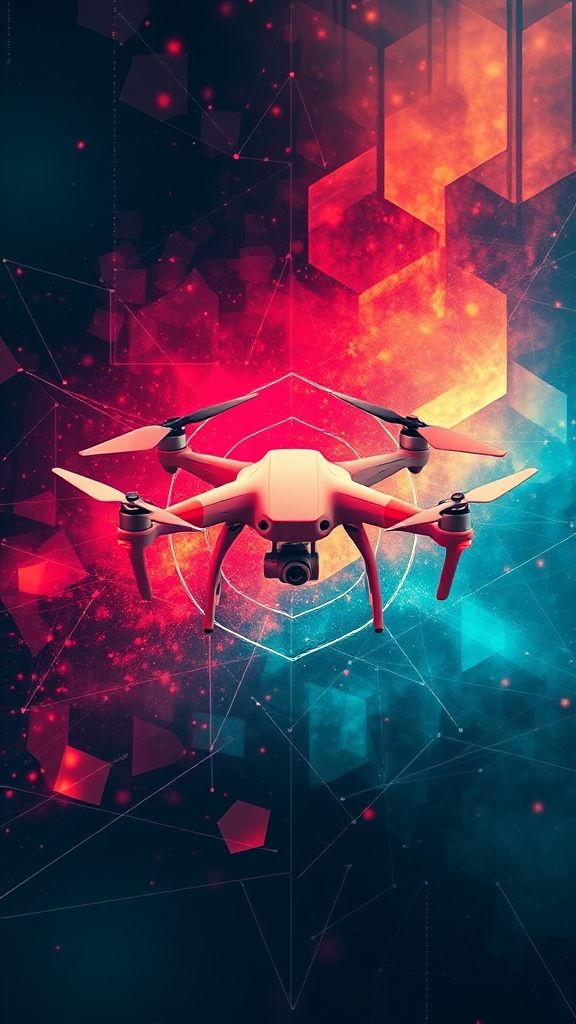Skyportz Unveils Revolutionary Vertipad Prototype That Puts Urban Air Mobility Within Reach
The Skyportz Vertipad Prototype: A Breakthrough in Advanced Air Mobility Infrastructure Australian …
30. September 2025

DJI Shell Company Jovestar Signals Mini 5 Pro Clone for U.S. Market
In a move that has left industry observers and regulators scrambling, DJI Shell Company Jovestar has submitted documents to the Federal Communications Commission (FCC) for an unmanned aircraft with specifications eerily similar to those of the highly sought-after DJI Mini 5 Pro. The filing, made in February this year, suggests that Jovestar is not just a newly created entity but rather a suspected shell company created by DJI itself.
This revelation comes at a time when DJI is facing its most severe challenges in the U.S. market. Since October 2024, the company has been subject to customs restrictions imposed by the Uyghur Forced Labor Prevention Act, which has severely limited its ability to import and sell drones in America. In response, DJI has been expanding its network of shell companies, a strategy that aims to maintain the company’s presence in the market while avoiding direct regulatory scrutiny.
The Jovestar filing is significant not only because it suggests that DJI is using its own shell company to circumvent U.S. import restrictions but also because it reveals the extent to which the company is willing to go to maintain its market share. The specifications of the aircraft, including a 7.3Vdc battery and LiDAR capability, closely match those of the Mini 5 Pro, making it clear that this is not just a rebranded product but rather a clone designed to mimic the features of DJI’s most successful consumer drone.
The LiDAR technology, in particular, is noteworthy because it is a critical component of the Mini 5 Pro. The use of LiDAR allows the aircraft to detect and navigate obstacles with greater precision than traditional obstacle avoidance systems, making it an attractive feature for both hobbyists and professional users. However, LiDAR-equipped drones are also subject to stricter regulations in the U.S., which may have motivated DJI to create a clone that can operate within these restrictions.
The FCC filing has sparked concerns among regulators and industry experts, who point out that the use of shell companies by drone manufacturers can make it difficult to track imports and ensure compliance with safety standards. “This is a classic case of DJI trying to find ways to circumvent regulatory hurdles,” said security researcher Konrad Iturbe.
Iturbe’s warning comes as the U.S. government continues to scrutinize the use of drone technology in various contexts, from border security to military operations. The recent passage of the Countering CCP Drones Act has heightened tensions between China and the United States over issues related to drone technology, making it increasingly clear that regulators will be keeping a close eye on developments in this space.
The emergence of Jovestar raises several questions about the regulatory landscape in the U.S. and how it will affect the future of drone technology. Will regulators recognize and act on these shell company patterns before they become entrenched? How will this affect the availability of drones for consumers, particularly those who rely on DJI’s products for their work or recreational activities?
DJI’s use of shell companies to maintain its market presence in the U.S. is not an isolated incident. In recent years, the company has established several other subsidiaries, including Cogito Tech and Skyrover, which are also suspected of being shell companies created by DJI. These shell companies have been used to distribute products such as the Mini 4 Pro, which is a clone of the popular DJI Mini 3 Pro.
The use of these clones has allowed DJI to maintain its market share in the U.S. while avoiding direct regulatory scrutiny. However, the use of shell companies also raises questions about transparency and accountability in the drone industry. When consumers buy products through these subsidiaries, they may not be aware that they are purchasing a clone of a more popular model. This lack of transparency can make it difficult for regulators to ensure compliance with safety standards.
The recent passage of the Countering CCP Drones Act has heightened tensions between China and the United States over issues related to drone technology. The law requires the U.S. government to conduct a security review of all drone imports, including those from countries like China. This review process will be critical in determining whether drones imported by DJI or its subsidiaries are subject to restrictions or bans.
The emergence of Jovestar raises concerns about the regulatory landscape in the U.S. and how it will affect the future of drone technology. Regulators must balance the need for innovation and economic growth with the need to ensure public safety and security.
In conclusion, DJI’s use of shell companies like Jovestar is a complex issue that requires careful consideration. While these operations may provide a temporary workaround for regulatory restrictions, they also pose risks for consumers and regulators alike. The U.S. government must take a proactive approach to addressing these concerns, working closely with industry experts and manufacturers like DJI to ensure that drone technology is used in ways that promote public safety, security, and innovation while protecting consumers from unscrupulous manufacturers.